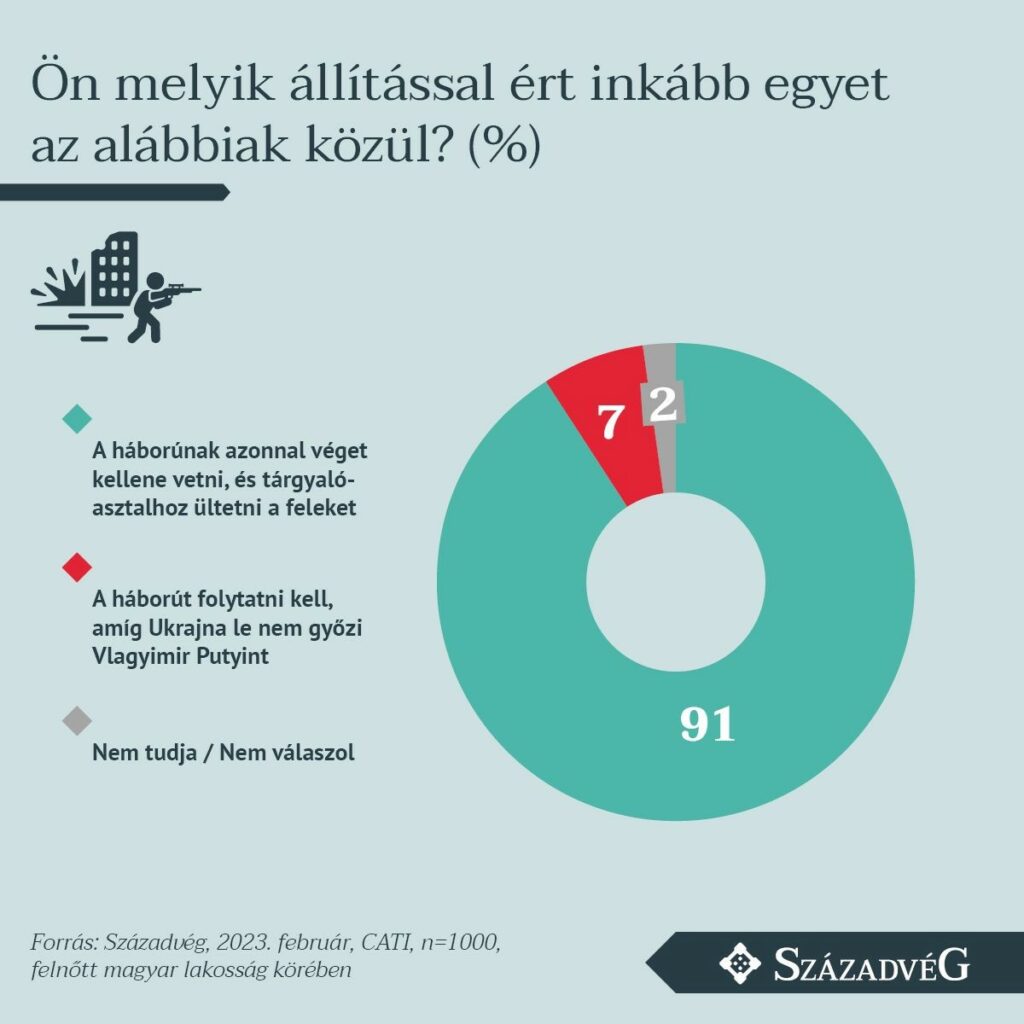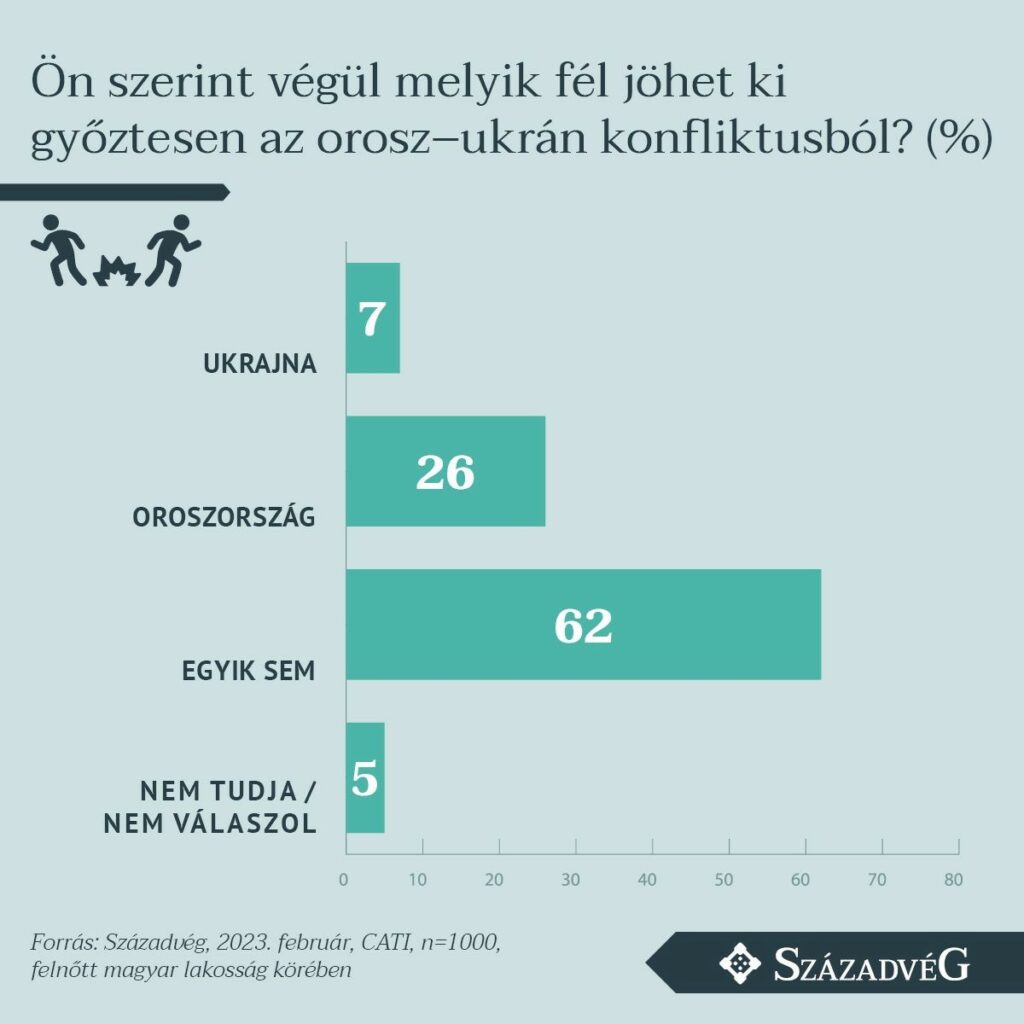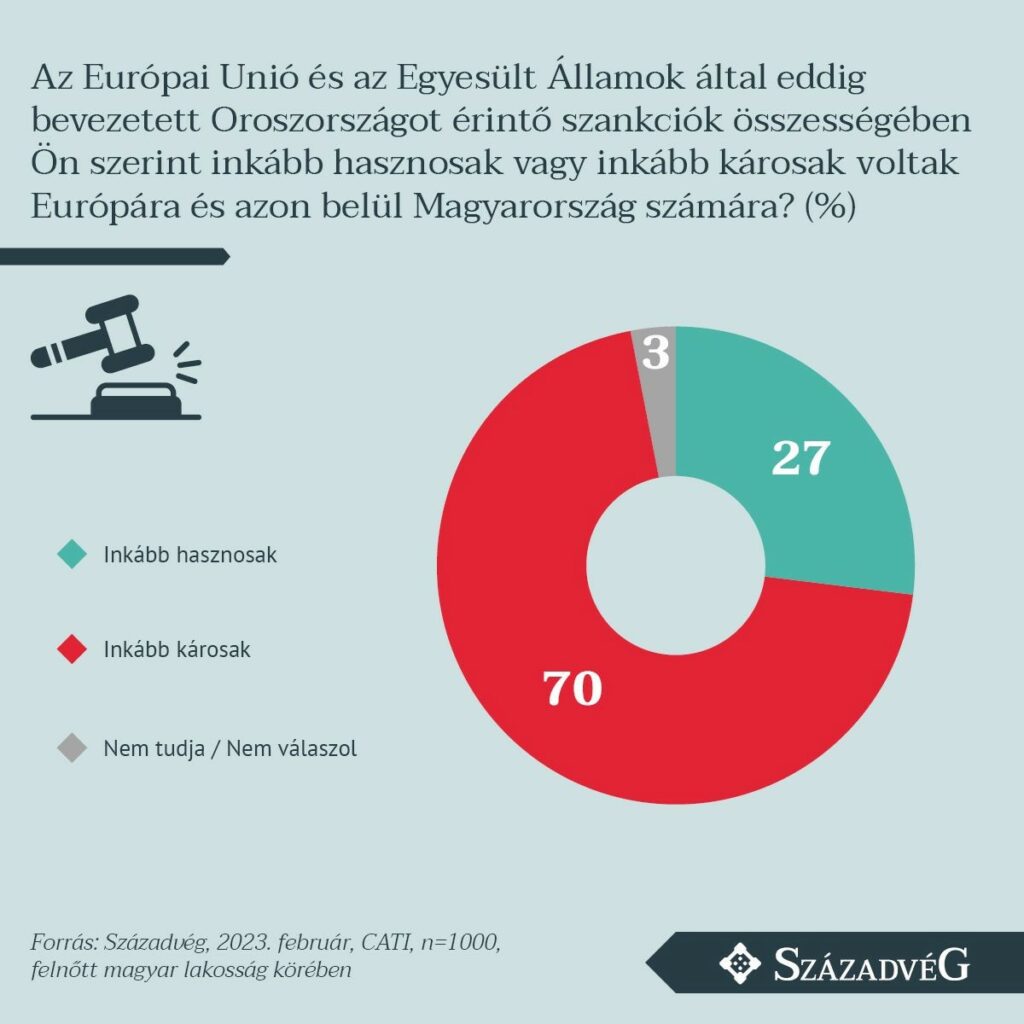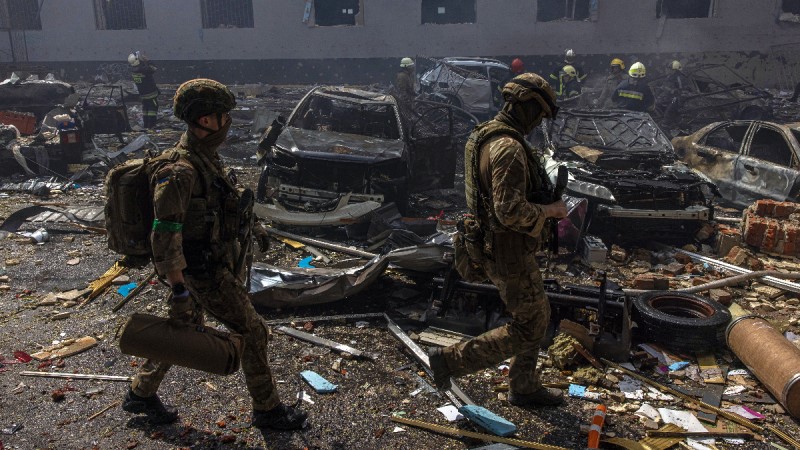In connection with the Russian-Ukrainian war, the Government of Hungary pursues a pro-peace policy, the main element of which is to promote an immediate ceasefire instead of steps that encourage further escalation of the conflict. Századvég and the Biden administration in connection with international criticism.
In connection with the Századvég survey, he recalled that, in addition to the Vice-President of the European Commission, Vera Jourová, and the American Ambassador David Pressman, several international actors criticized the position of our country with the intention of exerting political pressure. Guy Verhofstadt, a liberal member of the European Parliament, complained that Viktor Orbán "is still sabotaging the sanctions against Russia" and demanded that Hungary's right to vote in the European Council be revoked. In addition, Ukrainian Deputy Foreign Minister Yevhen Perebijnys expressed his disappointment that our country "blocks sanctions against Russia".
The survey highlights that a social consensus has emerged in Hungary to end the armed conflict as soon as possible, in addition to the immediate cessation of combat operations. It can be concluded that according to 91 percent of Hungarians, the Russian-Ukrainian war should be ended immediately and the parties should be brought to the negotiating table.

Source: End of the century
The percentage of those who believe that the armed conflict should continue until Vladimir Putin is defeated is only 7 percent. The high level of social support for ending the war as soon as possible can be traced back, among other things, to the fact that 62 percent of those surveyed believe that neither side will ultimately emerge victorious from the war conflict.

Source: End of the century
Since the outbreak of the Russian-Ukrainian armed conflict, Brussels and the Biden administration have taken a stance in favor of sanctions, with which they try to curb Russia's military aspirations. Based on the research, it can be clearly stated that the population considers the penal measures introduced so far - contrary to their original purpose - harmful for Europe.
70 percent of the respondents stated that the introduced sanctions caused more damage to Europe and Hungary as a whole.

Source: End of the century
It can therefore be seen that, despite the pro-war and pro-sanctions international criticism, the Hungarian government's policy regarding the Russian-Ukrainian crisis is not only in line with the expectations of the majority, but can also be considered a fairly unified national position, Századvég wrote.
Source: End of the century












